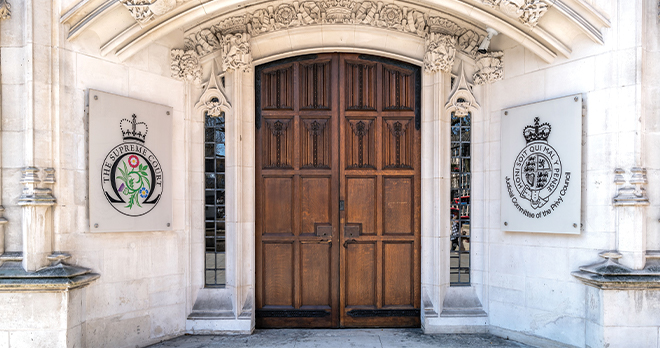What are the latest rules on visas in the UK?

On 17 July 2023, the Home Office released a 'Statement of Changes in Immigration Rules,' introducing updates related to the EU Settlement Scheme, the Ukraine Extension Scheme, the student route, asylum policies, and the Skilled Worker route.
Here we answer some key questions relating to student visas, fees, and Shortage Occupation Lists (SOLs) in light of the new updates.
How do you switch from a student visa to a skilled worker visa?
With effect from 15:00 BST on 17 July 2023, students can only switch to the Skilled Worker Route under one of the following circumstances:
- They have completed the course of study they are sponsored for; or
- They are enrolled on a full-time course of study at degree level or above with a higher educatio0n provider and their certificate of Sponsorship indicates a start date no earlier than their course completion date; or
- They are studying a PhD, and their Certificate of Sponsorship (CoS) shows a start date no earlier than 24 months after the start of the PhD course.
This is a significant change that will particularly impact the health and social care sector who generally have high numbers of students switching into sponsored roles within the sector.
When can international students bring dependents to the UK?
In line with the Government’s efforts to reduce net migration, significant changes to the UK’s immigration rules are set to take effect from 1 January, 2024. These changes will impact the rights of students to bring dependent family members along with them to the country.
Starting from 1 January 2024, students will no longer have the right to bring their dependent family members with them, with a few exceptions. Government-sponsored students and dependent children born in the UK will still be eligible to accompany the primary applicant.
However, for the majority of students, the right to bring dependents will be limited to specific scenarios. Dependents will only be permitted if the student is pursuing a PhD, enrolling in other doctoral courses, or entering a postgraduate program that has been confirmed by the sponsor as a research-based higher degree.
It’s crucial for students and their families to be aware that the changes also apply to the Graduate route. If partners and minor children were ineligible as dependents under the Student route, they will continue to be ineligible under the Graduate route as well. This means that only those who meet the criteria for dependents under the new rules will be eligible to accompany the student.
What are the updates to visa fees in the UK in 2023?
On 13 July the government announced significant changes to visa fees, aimed at generating additional revenue to support pay increases for public sector workers. The key points are as follows:
- Work and visit visa fees are to be increased by 15%.
- Student visa, certificate of sponsorship, settlement, citizenship, wider entry clearance, permission to stay, and priority services will see a minimum 20% hike.
- The cost of priority services will be made the same whether applicants apply inside or outside the UK. The Immigration Health Surcharge (IHS) rate will rise to £1,035, while the lower rate for students and applicants under 18 will increase to £776. Health and social care workers continue to be exempt from the IHS.
The government projects that these changes will generate over a billion pounds in additional revenue. There has been no announcement on when the fees will increase but it is expected to be in Autumn 2023.
For employers and sponsors of overseas workers, the recent fee adjustments could have financial implications. It is crucial to evaluate the impact on budgets and plan accordingly. Considering the estimated additional revenue in excess of a billion pounds, employers should anticipate potential cost changes in immigration processes.
To minimise the impact of these changes, employers and sponsors may wish to expedite applications for their employees. By submitting applications before the fee increases take effect, they can lock in the current rates and avoid paying the higher fees.
What is the Shortage Occupation List in the UK in 2023?
The UK government has expanded the Shortage Occupation List (SOL) to include new occupations in the construction and fishing industries. These changes apply to immigration applications submitted on or after 7 August 2023.
In the construction industry, the following occupations have been added to the SOL:
- Bricklayers and masons (5312)
- Roofers, roof tilers, and slaters (5313)
- Carpenters and joiners (5315)
- Construction and building trades not elsewhere classified (5319)
- Plasterers, including classifying dry liners as plasterers, making them eligible for sponsorship (5321)
Additionally, two fishing industry occupations have been included:
- Agriculture and fishing trades not elsewhere classified, limited to fishing industry jobs (5119)
- Fishing and other elementary agriculture occupations not elsewhere classified, limited to deckhands on fishing vessels nine meters long or more, requiring at least three years’ full-time experience gained lawfully (9119)
The Migration Advisory Committee (MAC) is currently conducting a comprehensive review of the SOL, with its report expected to be published in Autumn 2023. The Home Office will consider the MAC’s recommendations, with further updates to the SOL anticipated in Autumn 2023 or Spring 2024. These updates aim to address workforce shortages and strengthen the UK’s labour market.
Given the complexity of the new rules and their potential impact on students, employers and sponsors, it is advisable for those concerned to seek legal advice on immigration matters.
Professional advice can help individuals make informed decisions about immigration plans, ensuring a smooth transition amidst the evolving regulations.
Our expert immigration lawyers provide you with clear and straightforward advice, and provide a lot of our immigration law services for a fixed fee so you have complete budget certainty from the outset.
Call now












